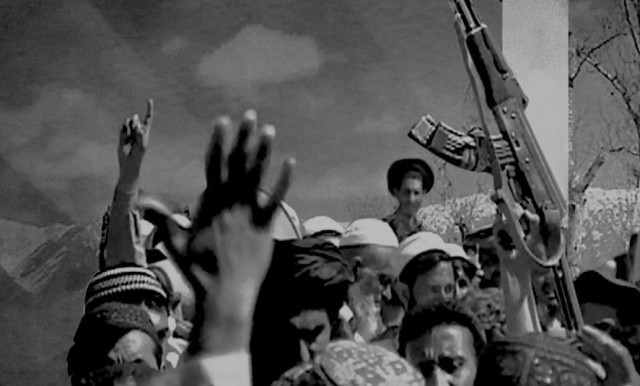Can the Taliban keep their word?
Unless we get the upper hand in our battle with the Taliban, talking peace with them may be of little use.

This is not the first time the terrorists have violated an agreement they had committed to. The military’s tendency to believe that the Taliban, as true Muslims, would stand by their peace deals, began to be disabused right after 2006 when South Waziristan tribesmen, who had been hosts to Arab warriors and had fought the American-Nato war in Afghanistan, began to go back on their word. Islamist and anti-American generals, who sewed up deals with Nek Muhammad and Baitullah Mehsud were betrayed when the Taliban attacked an army convoy and took a large number of troops and officers hostage.
The latest betrayal may have many causes, one could be the tough stances taken by the Kurram tribes divided by sect, but it is also true that the Sunni factions listen to the Taliban and obey their command. The current leader of the Taliban, Hakimullah, has built his bloody career on his readiness to kill the Shias, allowing his spokesman to rename himself after Azam Tariq, the Punjabi leader of the banned Sipah-e-Sahaba, guilty of spreading anti-Shia sentiment in Pakistan. The Kurram setback will give pause to those who recommend ‘talks’ with the Taliban. When asked which Taliban, one should talk to, the answer is that the Pakistan Army will choose the right Taliban. The quarrel between the Pakistan Army and the Americans, stems from the latter’s objection that Pakistan has already had experience with its ‘peace deals’ and should not talk to elements killing innocent people en masse with suicide bombers and car bombs. Also, it is no use talking to the enemy when he is in the ascendant and betrays no signs of suing for peace. No sensible person can be opposed to talks, but record shows that the peace policy will not be effective before Pakistan is able to push the Taliban back and make them feel like talking.
Even those who support the Pakistan Army stance on talks and oppose America’s pressure for attacking North Waziristan, acknowledge the problem of peace deals that keep falling apart. An ex-chief secretary of Khyber-Pakhtunkhwa and an expert on tribal affairs, wrote against the American policy causing the drone massacre of Datta Khel, but noted the following facts about ‘peace deals’ with the terrorists: “Hafiz Gul Bahadur has become a prominent militant leader with alleged links to the Afghan Taliban, the Haqqani network and al Qaeda. He is also an influential member of the larger militant local council called Shura Ittehad-ul-Mujahideen (United Council of Mujahideen) that includes Maulvi Nazir of Wana. It also included the late Baitullah Mehsud.”
He adds: “However, Gul Bahadur is considered an asset by the Pakistan military for maintaining some semblance of control in the region. Furthermore, Gul Bahadur has a record of cooperation with the Pakistani authorities. In 2006, he brokered the North Waziristan ceasefire that ended attacks on the Pakistan military and he agreed to evict foreigners. The agreement collapsed in July 2007, when a convoy of the Pakistan Army was ambushed and more than 20 soldiers died.” Kurram Agency has been closed to Pakistan, more or less like North Waziristan, the only difference being the former’s internecine sectarian violence and North Waziristan’s status as a launching pad of terrorist attacks inside Afghanistan. Exploitation of the idea of ‘talks’ by wrangling politicians without regard to the fact that it might further strengthen the terrorists must be abandoned. Unless we get the upper hand in our battle with the Taliban, talking peace with them may be of little use. And for that, we all must possess the will to resist the ideology of terror.
Published in The Express Tribune, March 27th, 2011.














COMMENTS
Comments are moderated and generally will be posted if they are on-topic and not abusive.
For more information, please see our Comments FAQ